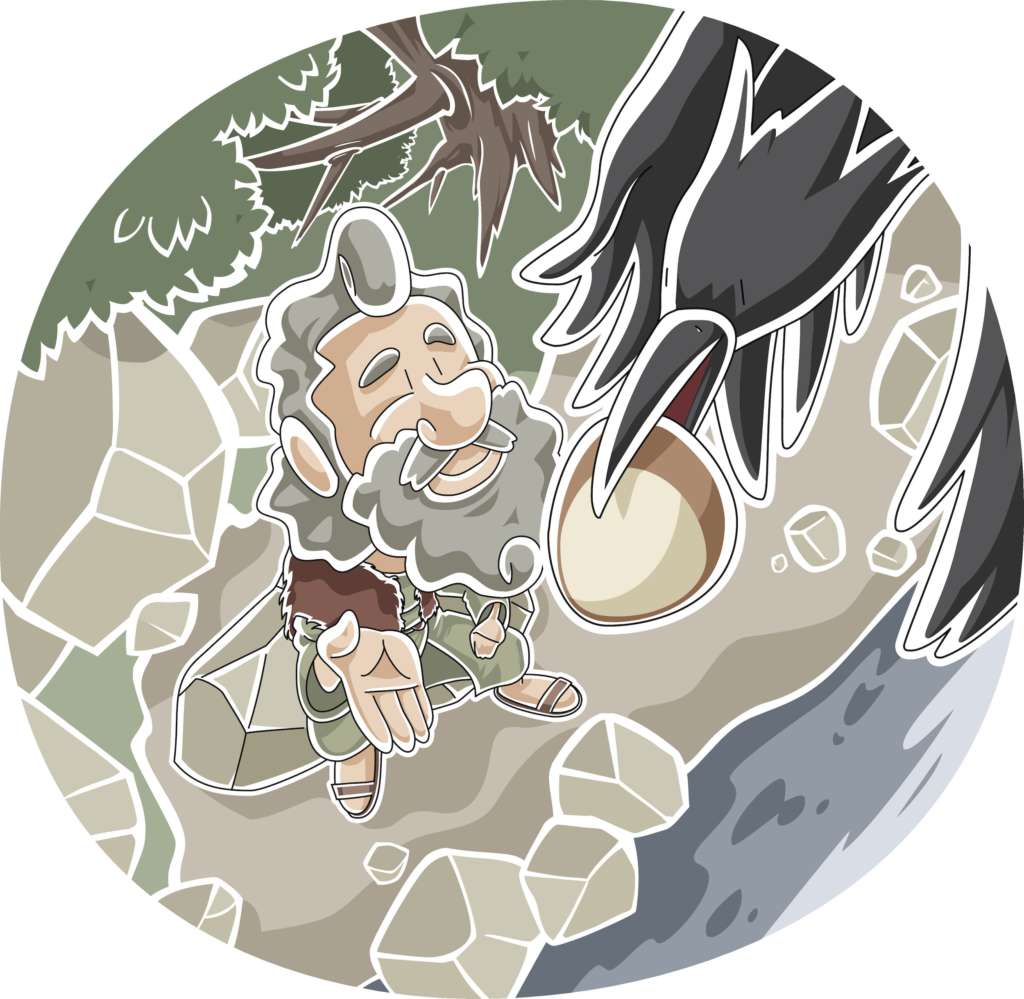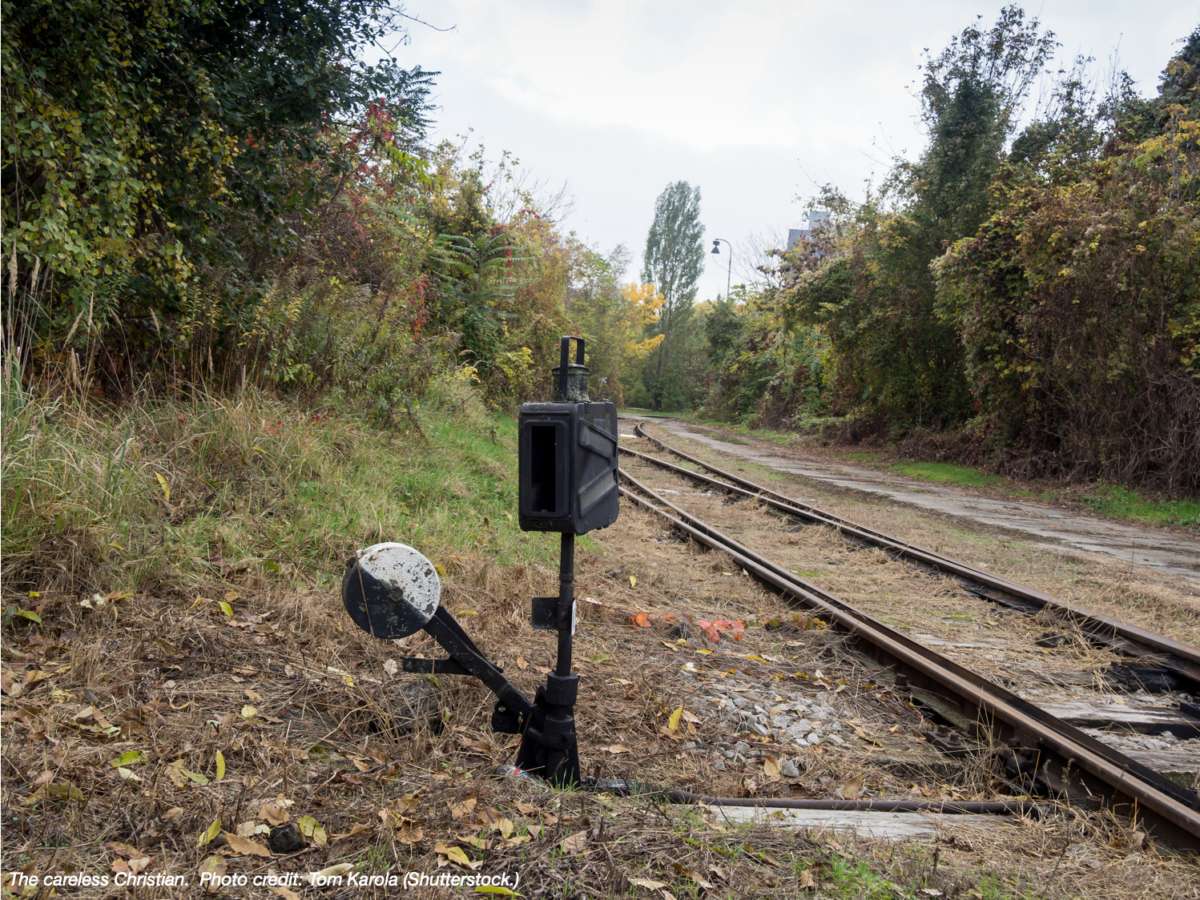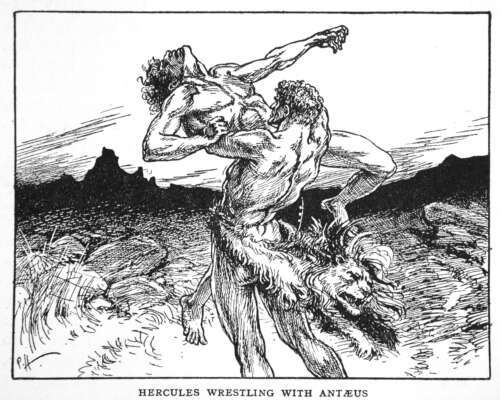The point of this post is to illustrate that each of us plays an important role in advancing the Kingdom of God whether we realize it or not. God gives us our “marching orders” in His Word by providing us with “leadings” to call so and so, visit such and such a place, pray for this or that, etc. It is important that we respond immediately and obediently to these prompts, whether they make sense to us or not or whether we personally learn the outcome of whatever it is that we’ve accomplished. So, when I feel burdened about someone, I pray for them. Sometimes I call or text them. Occasionally, they say they are having some sort of problem, but often everything is fine. At that moment, anyway. At times it is clear to me that the hand of God is at work in a situation, other times it is not. Asleep at the Switch is the first of several scenarios that illustrate this point.
Asleep at the Switch
There are all sorts of people who worked on the railroad in bygone years. There were engineers who ran the steam locomotives, firemen who shoveled coal or tossed wood into the firebox, brakemen who helped slow down a train, flagman who were responsible for signaling, and switchmen who threw the switches on tracks to be sure the train was headed on the proper track. These switchman also had other jobs involving maintenance of the switches in his area of responsibility, and perhaps minor track-related adjustments as well. In winter, switchmen were responsible for “sweeping away” ice and snow surrounding the switches with special brooms to avoid switch malfunctions in wintry weather. In railroad yards, switchmen would build and break trains using switches, but in this hypothetical, we have a switchman in a very remote area of rural America circa 1870. In reality, the rust on the surface of the rails suggests that the track is not frequently used (if at all), but that fits in the hypothetical. I hope that retired railroad employees and model railroaders will forgive me if I get a detail wrong.
The job description of the work switchmen began with the caveat that
“The vocation is the most dangerous of any of the different branches of railroading, and that [some switchmen] live for years is only due to their extreme carefulness. The least misstep will often result in crippling a man for life. Their hours of work are long, and the labor very hard, and rain or shine they have to be at their posts. There is no protection for them from the rains of summer, nor the freezing winds and snows of winter. On their efficient work, the great commercial interests of the country largely depend, and only a little carelessness on their part may result in immense damage to the goods in transit, and an error in delivery sometimes causes the loss of an entire consignment of freight, if it happens to be perishable.”
And as far as the crippling injuries mentioned above are concerned, it was fairly common for switchmen to lose fingers, a hand or arm in the course of their career.
Look at the featured photo. “That one little unimposing, weathered device patented in 1832 could decide events larger than a person might imagine. Trains would derail and people get hurt if the worker was asleep at the switch” according to one source. You don’t need to be a railroad man or woman to tell that the switch in the photo needs urgent attention, as does the adjoining track, itself, the spikes, bolts, and so on. There might be three trains a day or only one every three days depending on the circumstances. But whether the train came at 1:00 p.m. or 3:00 a.m., the switchman must be at his post.
“That one little unimposing, weathered device could decide events larger than a person might imagine. Trains would derail and people get hurt if the worker was asleep at the switch.”
It would be so easy for a switchman on a hot summer night to dose off, or leave his post to visit his girlfriend, or his sick mother. But if he did, not only might he miss a unscheduled train, but he might not even know that one had passed by—now on the wrong track and bearing down on rotten track, or a washed out bridge–or–an approaching train.
First and ten
At the moment, we’re in the thick of football season. The Church is like a football team. Look at the diagram below showing the play. Each of the eleven men on the offensive team must occupy a prescribed position on the field before the play begins, and then be in a completely different predetermined position when the whistle blows.

Only one person carries the ball, and often that person is designated before the game even begins. Sometimes a person is chosen after the ball is in play, depending on which player is open at the moment. One or more players may “fake” receiving a handoff from the quarterback while another player serves as a decoy or diversion to draw the defense away from where the football will be. But regardless of who receives the ball at the snap, or after the handoff, everyone must be at their designated spot if the offense hopes to score or at least reach another first down. If you are an offensive linesman and not where you should be after the snap, a defensive linesman may slip by you and sack the quarterback. If you are a defensive linesmen and you are out of place, you may leave a hole for the quarterback to sneak through, or a tight end may wind up wide open.
Everybody on the field must be thououghly acquainted with the rules of play, just as the switchman needs to know his train schedules and switches. The football players, like the switchmen, must keep their head in the game. There is no room for “lone rangers” or people who “go against the flow.”
Elijah and the ravens
“Then the word of the Lord came to Elijah: ‘Leave here, turn eastward and hide
in the Kerith Ravine, east of the Jordan.
You will drink from the brook,
and I have directed the ravens to supply you with food there.’”
I Kings 17:2-6
There was a time in this prophet’s life that King Ahab and Jezebel, his wife, were hunting down and killing the prophets of God without mercy, and Eligah was at the top of their “hit list.” Like a coach telling a tight end where to go as he runs his pattern, God told Elijah to go to a specific spot in the desert to hide near a brook that would provide him with fresh water. God also shared these “coordinates” with a raven, and the raven was charged with bringing Elijah food in the morning and evening. But suppose Elijah finds a better place in (Elijah’s opinion) in which to hide out? Someplace with more amenities. How would the raven known that? And what if the raven had refused to play his role in this. Elijah would have gone hungry. So, there was to be a divine appointment for both man and bird to meet twice a day indefinitely. If both were faithful to God’s plan, everything would come together.

Why didn’t God just materialize a meal, or provide food for Elijah in a more conventional way? Why didn’t he send game for Elijah to catch, or perhaps provide fish in the stream? Even the manna from heaven that the Children of Israel received when they left Egypt might have made more sense to Elijah.
So Elijah did what the Lord had told him. He went to the Kerith Ravine, east of the Jordan, and stayed there. The ravens brought him bread and meat in the morning and bread and meat in the evening, and he drank from the brook.
Many of us have had our own “Kerith” experiences. Our spiritual lives seem to hit a dry spot. Obviously, no one is out to kill us, but we may be harassed by some Jezebel at work or even in our family that we need insight into. how to handle the situation. Perhaps we are grieving. Maybe our spiritual lifes are about to move in a new direction. So, we wait on instructions from the Lord, or some sort of inspiration or spiritual insight. During these dry periods in our spiritual lives, God provides us with just what we need. So, it is quite possible that there is a lesson for us, as well as a lesson for Elijah, during such time.
Arthur Blessit
I’m a big fan of Arthur Blessitt. I went to a rally he held in Miami once in 1972 when he ran for President. For those of you who don’t know him, he is the Baptist minister who carried a large cross around the world on every continent except Antartica (and possible there, too.) Before that, he was an active participant in the Jesus Movement and was known for his unusual approaches to witnessing. He shared something once in one of his books. I remember the basic facts, but may have a few small details scrambled.
Arthur was in Toronto, Canada one year in late fall or winter. He was standing at an intersection as night was approaching wondering where he could stay. He had more than enough cash on him to pay for a hotel room, but then what hotel would allow him to bring in a six or seven foot cross? So, he prayed. Meanwhile, some blocks away from him was a lady whose utilities were scheduled to be cut off the very next day because she could not pay them. She prayed for help. As she prayed, she “heard” God mention that she should go out on the street to a certain intersection and she’d see a man with a large cross. She should invite him to spend the night in her house (apartment?) Meanwhile, Arthur, who was still praying on the street corner, was being “prompted” that a lady would be approaching him with an invitation, he should accept, and he should reach into his pockets and give her all the money that he had on him-which was more than enough for her utility payment. To me, this is the classic example of God at work.
In another episode of Authur’s life, he felt called to preach in a large town in the northern midwest of the U.S. He prayed, made up flyers, told people around town about it and invited them–the works. But when the rally was scheduled to begin, no one was there except his wife. Most of us would pray and then shrug, turn off the lights and leave. Arthur did pray, but he still felt burdened to preach, so he and his wife sang some hymns, he preached the sermon he had prepared for the occasion, and held an invitation for anyone who wanted to come forward. Of course, there was no one there. So, why did God work this way? I’m not sure, but there may have been some divine purpose that we mortals (including Arthur who is in his eighties now) could not fathom or did not have the need to know.
Personal remarks
In my own life, I’ve called a stranger to tell them God loves them because I received their (unlisted) telephone number in a dream. You just can’t hide from God, even with the help of Ma Bell. We’re like workers building a tall structure. Some of us hang steel, others paint the building, still others install plumbing, or sheet rock. But if the Otis people don’t install the elevators or the electricians never show up, the building can never be completely functional.
So, I encourage everyone to pray, and listen for the leading of God. Stay awake by all means. Make yourself available to Him. And when He gives you an assignment, don’t be like Jonah and run from it. Carry it out to the best of your ability as soon as humanly possible.




